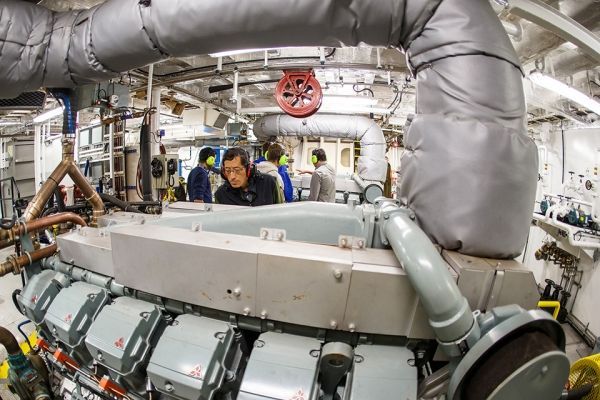Drop an electric motor into a ship and you’re all set to sail into a cleaner environment, right?
If only it were that simple, says a University of Victoria mechanical engineer whose research focuses on hybrid electric propulsion systems.
Zuomin Dong and his research team have studied and built advanced hybrid vehicles for a decade, winning dozens of awards. His team’s computer modelling tools take all operational factors into account to identify the “sweet spot” where vehicles achieve maximum fuel efficiency and emission reduction without sacrificing performance.
The team is now working on hybrid electric propulsion systems for ships, heavy-duty mining trucks and trains. BC Ferries is one of several industry partners working with Dong, all of them interested in fleet conversion but needing to know more about costs, logistics and impact on performance.
Ships are much more complex and challenging than cars, says Dong, who is also a member of UVic’s Institute for Integrated Energy Systems, a leader in sustainable energy systems research. While cars are mass-produced, mostly the same size and operate in similar conditions, every ship is unique and expensive, produced in small batches and operating on different routes with different cargo loads.
Continue reading at University of Victoria.
Image via University of Victoria.


